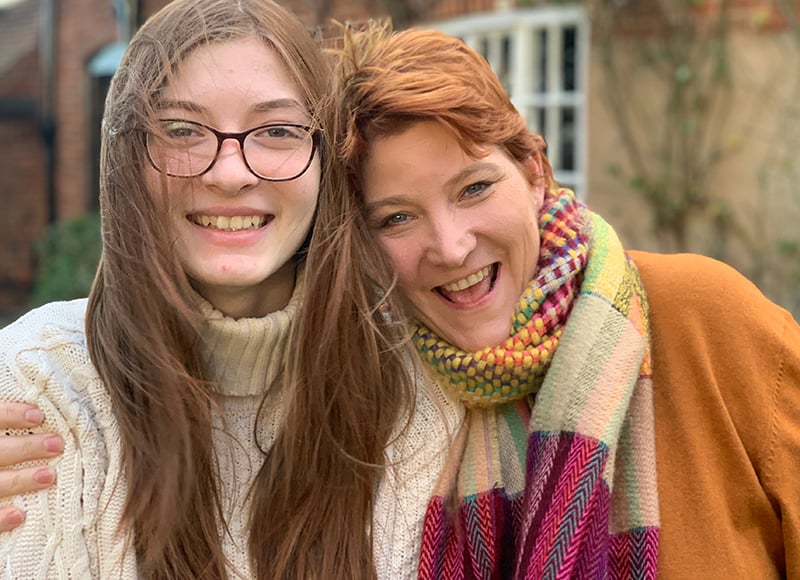
Warning: This post deals with mental health and may be triggering for some readers.
Suzanne Alderson knows exactly what it’s like to parent a child struggling with their mental health.
In 2015, Suzanne’s world was turned upside down when her teenage daughter came to her and said she was suicidal, labelling it "the darkest time in my life".
Her daughter was being chronically bullied at school, but to Suzanne, she presumed it was a teenage phase that they could ride out together.
But that unfortunately wasn’t the case.
Watch: Parents of Teenagers Translated. Post continues below.
“When she was 14 she was badly bullied at school, and it had an increasingly poor impact on her mental health, and she declined to the point where she couldn't leave the house,” Suzanne said to the BBC podcast Woman’s Hour.
“She couldn’t sleep, she wasn’t eating, so I took her to see our GP. She asked if she could go into the appointment on her own, and it was at that point that she disclosed to him that she had a plan to end her life imminently.”































































































